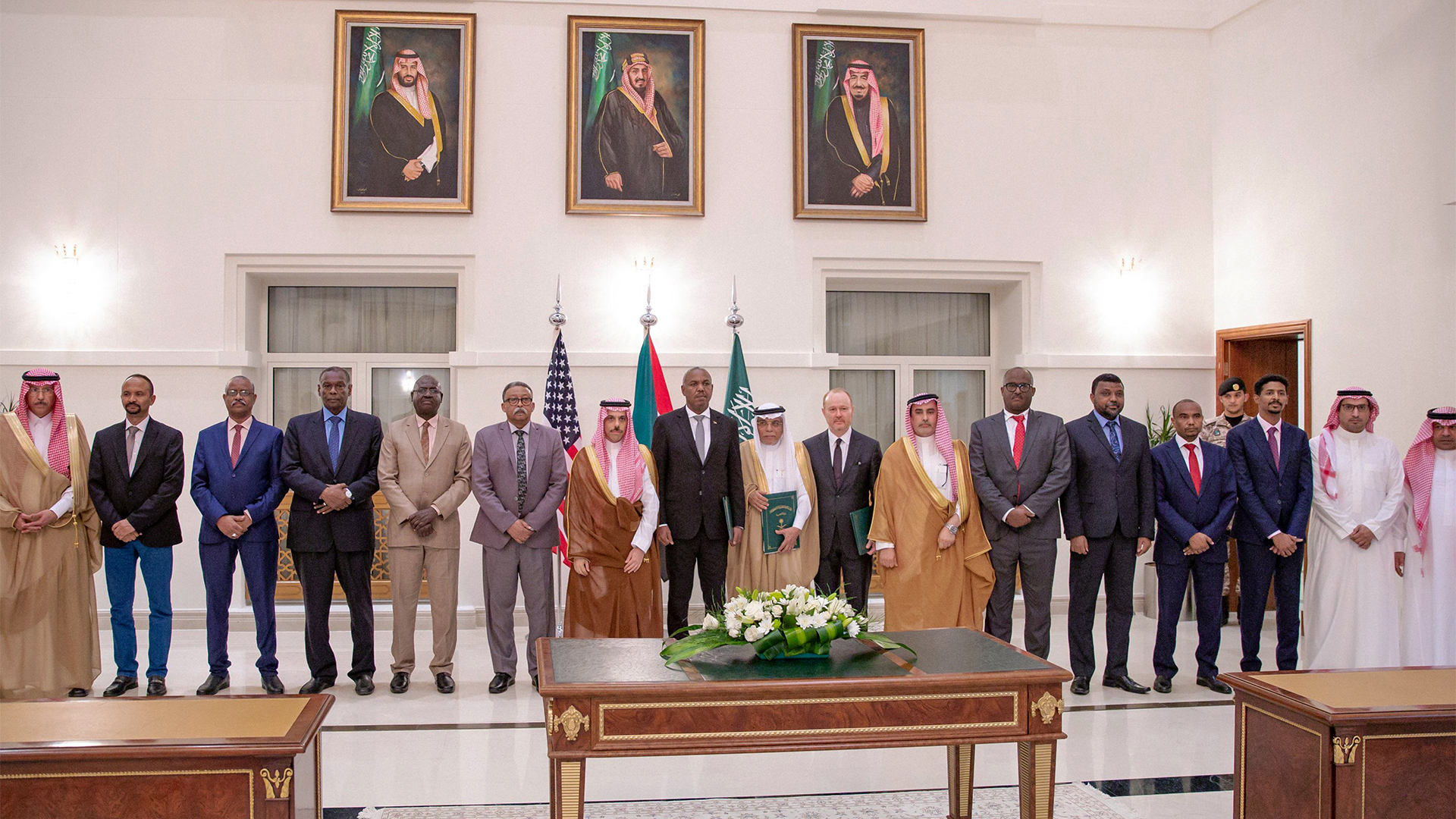Ambassador David Shen, former US assistant secretary of state for African affairs, ruled out the response of the parties to the conflict in Sudan - the army and the Rapid Support Forces - to the call of Riyadh and Washington for a new ceasefire agreement.
He attributed this to the episode of "Beyond the News" program (2023/6/4) to what he believes that neither of the parties to the conflict has a real desire to end the fighting, but rather each seeks to resolve the battle by force of arms, without paying attention to the tragedies of civilians and the killing and economic and living challenges they are exposed to.
This comes after Riyadh and Washington, the sponsors of the Jeddah talks, called on the parties to the conflict in Sudan to a new ceasefire agreement and "implement it effectively", in preparation for a permanent cessation of military operations, in the wake of violent clashes in Khartoum and other Sudanese cities between the army and rapid support forces, on the first day after the end of the truce signed between the two sides in Jeddah.
This truce ended with no clear prospect of its renewal, while the parties to the conflict accused each other of not abiding by it. On Thursday, Saudi Arabia and the United States announced the suspension of Jeddah talks between the parties to the conflict in Sudan as a result of gross and repeated violations of the ceasefire.
Sincere desire
Speaking to Beyond the News, Ambassador David Shen stressed that Saudi Arabia and the United States are sincere and sincere in their desire to end the armed conflict in Sudan, and that they are doing what they can, but that the parties to the conflict lack a real desire to reach a ceasefire agreement that would squander these efforts and endeavors.
He stated that he does not see a change in the positions of the two parties that could indicate their response to the call of Riyadh and Washington for the continuation of talks with the aim of reaching a new ceasefire agreement, stressing that without serious cooperation from them, it is difficult to reach this hoped-for agreement.
In his speech, he pointed to the difficult humanitarian situation suffered by the Sudanese people in light of the continuation of the war, and their urgent need for this agreement so that humanitarian organizations can intervene and provide urgent relief, which is increasingly urgent with the worsening situation in the country.
A new phenomenon
Sudanese security and strategic affairs expert Maj. Gen. Mutasim Abdul Qader al-Hassan believes that the army has become in control of all situations, pointing out that the Rapid Support Forces' seizure of civilian homes and civilian facilities does not contradict this control, as he described.
He added – in his speech to the program "Beyond the news" – that there is a new phenomenon in the field, represented in the desire of groups of the Rapid Support Forces to surrender and get out of the battle, which was rejected by what he described as rebel forces, which led to the outbreak of internal clashes between them.
He stressed that the army was committed to the truce, despite the slowness of its resolution of the battle, in the interest of the interests of civilians, and that the bombing carried out by it targets only the military sites of the rebel forces, according to his description, and if those forces abide by the terms of the Jeddah agreement, and leave homes and civilian facilities, the war will end.
On the other hand, Sudanese writer and political analyst Al-Basha Tabiq believes that there is a state of great evasion by the army, which appears through the conflicting statements of its representatives, accusing it of not adhering to the truces and the Jeddah Agreement, and of targeting civilians with aerial bombardment, which has increased in frequency recently.
He warned – in his speech to "Beyond the news" – that the current situation portends a major disaster, in light of the continuation of this bombardment, which he says that the army is trying to achieve any victory, and seize the positions of the Rapid Support Forces, but the real affected by it are citizens and their homes.
He stressed that the Rapid Support Forces control 95% of military sites in Khartoum state, and that what is said otherwise is nothing more than slander and arrogance by the army and its supporters, pointing out that the Rapid Support delegation is still in Jeddah and confirms its commitment to the agreed decisions, including the formation of a monitoring committee of mediation to determine the locations of control of each party.

